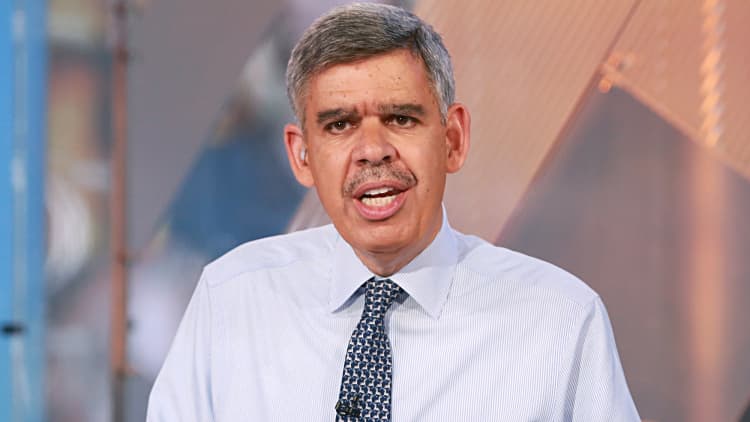
The Federal Reserve will likely cut interest rates again this year, but the move won't have much of an impact on the U.S. economy, closely followed economist Mohamed El-Erian told CNBC on Wednesday.
"I suspect they will cut because the risk of not doing so is high, but we shouldn't expect that to materially change economic outlook," El-Erian, Allianz's chief economic advisor, said on "Closing Bell."
Traders are putting the odds of a quarter-point cut at 77% at the Fed's late October meeting, according to the CME Fedwatch tool. In September, the Fed lowered its benchmark overnight lending rate to a target range of 1.75% to 2%, from 2% to 2.25%.
Odds of a quarter-point cut were below 50% prior to Monday's news that ISM's purchasing managers index fell in September to its lowest reading since June 2009 and showed its second straight month of contraction.
A report Wednesday from ADP and Moody's Analytics also showed the pace of private-sector hiring slowed in September, prompting further questions about the health of the U.S. economy.
For El-Erian, a well-known economist who used to run investment giant Pimco, the questions surrounding the Fed — and other central banks — isn't whether they will issue "friendly" monetary policy amid a global economic slowdown.
"The question is whether they can stay effective," El-Erian said. "Already, in the case of the [European Central Bank], in my opinion, they are not just ineffective, but they are actually now harmful to the economy. So keep an eye on that."
The ECB reduced its main deposit rate to -0.5%, a record low, last month.
Despite his belief it will cut rates, El-Erian said he thinks the Fed has to consider the health of the domestic side of the economy.
"The Fed has room to cut, but do you really want to use that now when the domestic economy is still doing well?" El-Erian said.
In fact, El-Erian said he thinks the domestic economy — not monetary policy, or fiscal policy from the government — will prevent the U.S. from sliding into a recession next year.
"What will save us from a recession, and I'm pretty optimistic about this, is the nontradable sector, the domestic sector of the U.S. economy, that is still in good shape," he said.


